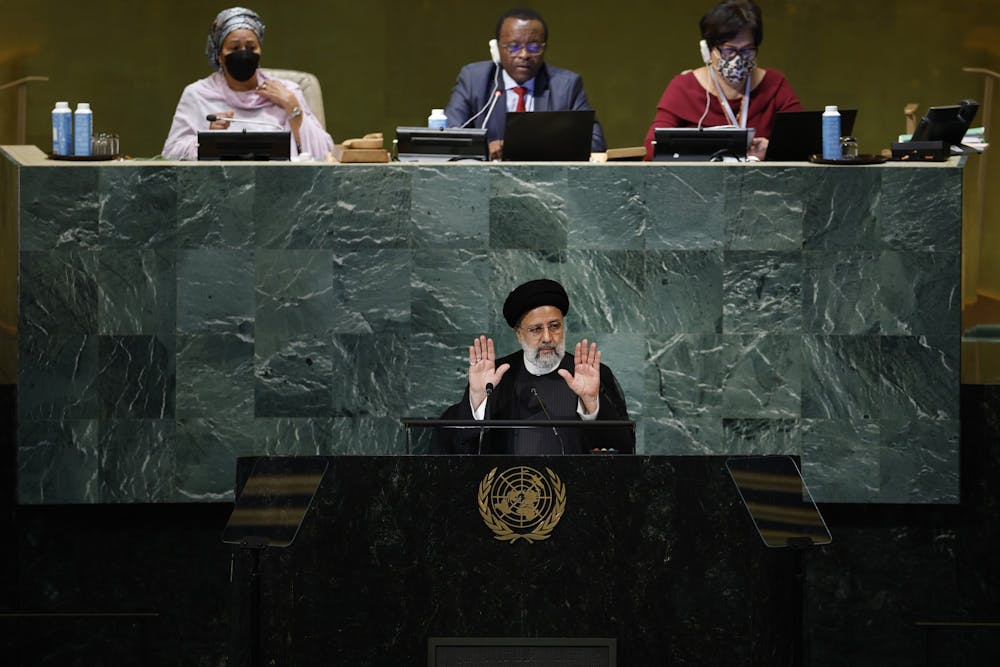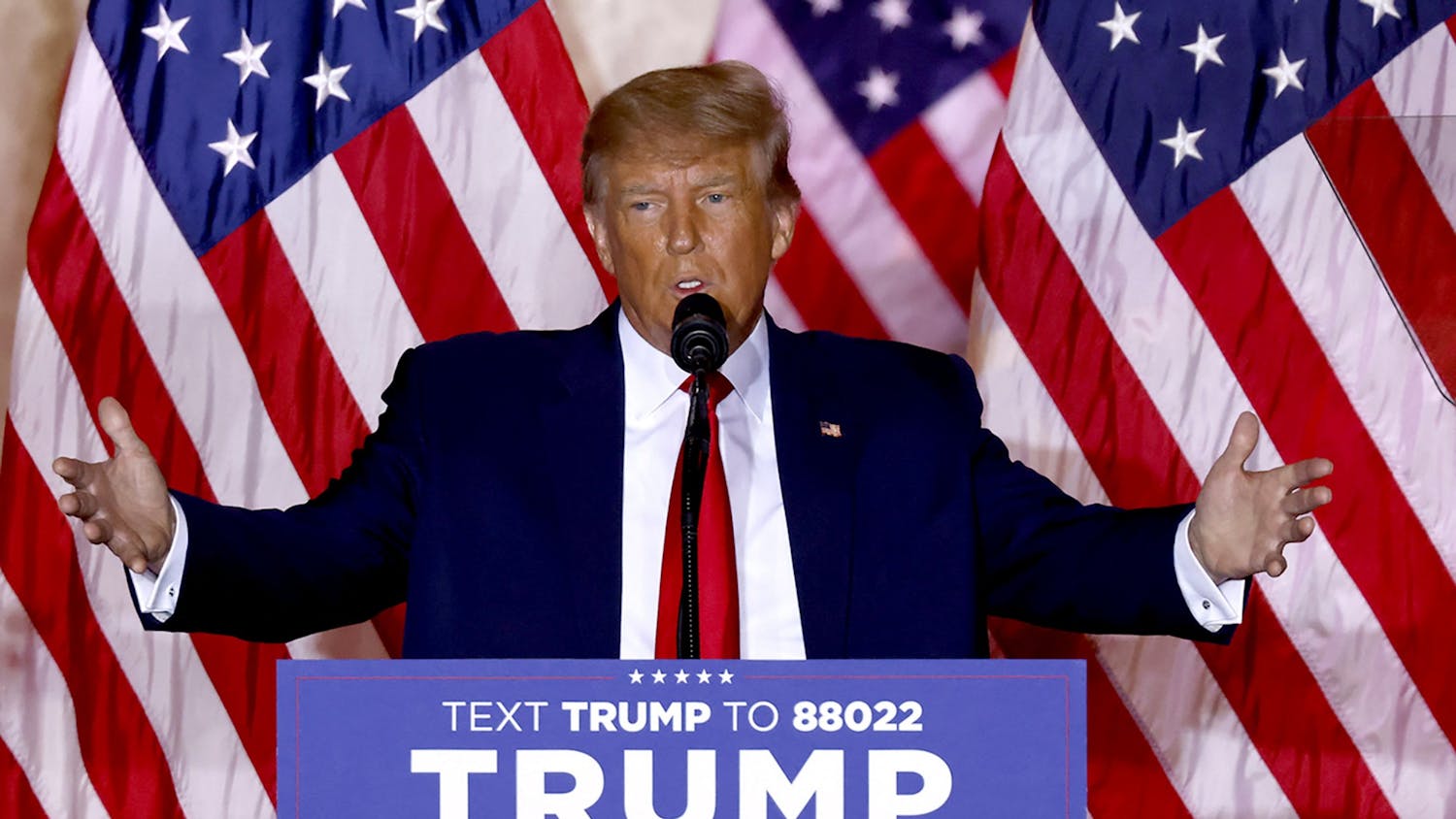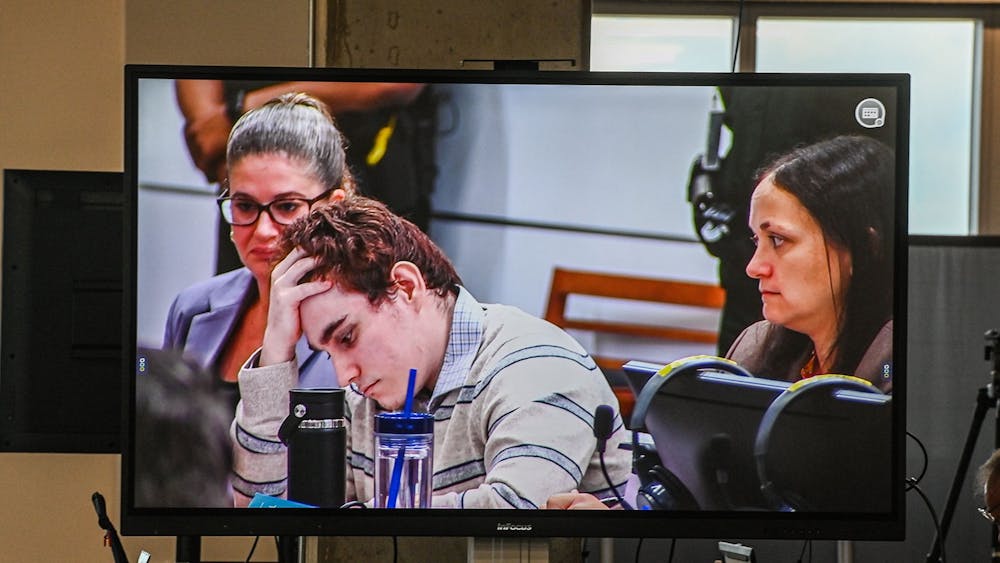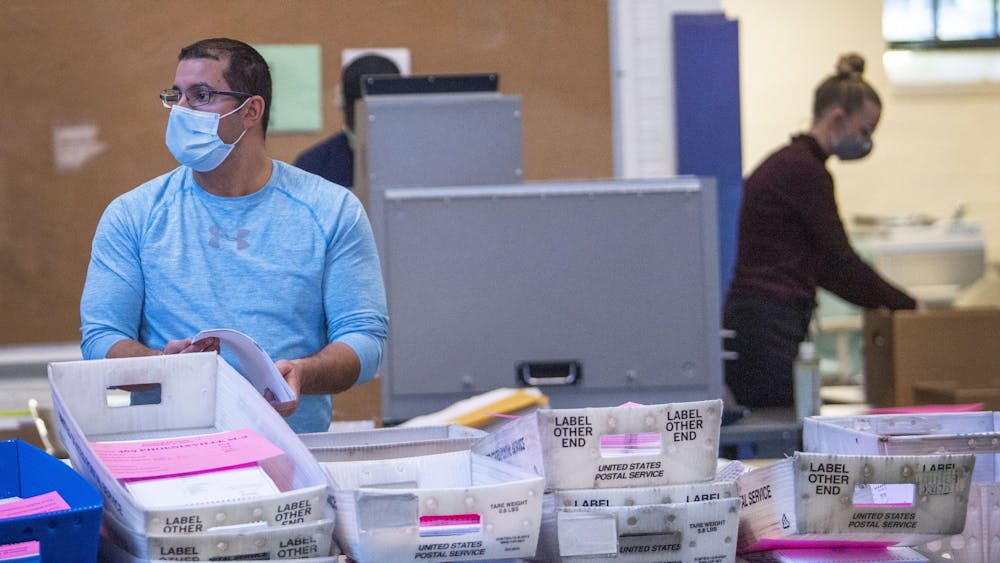Editor's Note: The Indiana Daily Student is now publishing national articles from our wire service. What does that mean? Read a letter from the editor about it here.
UNITED NATIONS — As street protests in Iran turned increasingly deadly, President Ebrahim Raisi on Wednesday accused the West of maintaining a double standard on human rights.
Speaking at the United Nations General Assembly, Raisi attempted to deflect international outrage over the death last week of a 22-year-old woman in the custody of Iran's so-called morality police. They reportedly arrested her for failing to completely cover her hair.
Raisi also used the speech to insist that Iran was eager to revive the moribund nuclear deal aimed at preventing the country from developing a bomb, but questioned whether the U.S. could be a trusted partner in any accord.
It was a rare appearance in the West by Raisi, a hard-liner who became Iran's president about a year ago.
"Human rights belongs to all, but unfortunately it is trampled upon by many governments," Raisi said. He cited the suffering of stateless Palestinians and the detention of migrant children in the U.S., separating them from their families.
The Iranian government has maintained that Mahsa Amini, an Iranian Kurd, died of a heart attack after she was detained and sent to a "reeducation center" for instruction on proper attire. Iran forces all women to wear headscarves that cover their hair as well as other clothing considered to be modest.
Amini's family insists she was healthy and had no heart condition. The government has ordered an investigation.
Her death touched off protests in numerous Iranian cities, some involving women torching their scarves. On Wednesday, seven people were reported killed in the demonstrations as security forces moved to crack down on the protesters.
"Iran's security forces will continue to feel emboldened to kill or injure protesters and prisoners, including women arrested for defying abusive compulsory veiling laws, if they are not held accountable," Diana Eltahawy, Middle East deputy director for Amnesty International, said in a statement. She also demanded an independent investigation and criticized Raisi being given a world stage amid what she called Iran's abuses.
In other comments, Raisi said his government had a "great and serious will" to return to the 2015 nuclear deal, a landmark international accord brokered by the Obama administration and six other countries. It substantially reduced Iran's atomic energy program and was designed to prevent the country from developing a bomb.
But then-President Donald Trump walked out of the deal in 2018, saying it didn't go far enough in restricting Iran. Tehran resumed enrichment of uranium, a key component in nuclear weapons. With the election of Joe Biden, the U.S. entered indirect negotiations with Iran through European signatories to the deal in an effort to revive it.
Those talks have been repeatedly stalled by demands from both sides. Iran seeks relief from economic sanctions that the U.S. imposed and that have crippled its economy.
"We have before us the experience of America's withdrawal" from the deal, Raisi said. "With that experience and this perspective, can we ignore the important issue of guarantees for a durable agreement?"
"We only wish one thing: observance of commitments," Raisi said.
Biden, who also addressed the General Assembly on Wednesday, said the U.S. also wanted to reenter the deal. But he said Iran had to meet its obligations, which include allowing the U.N. watchdog International Atomic Energy Agency to conduct extensive inspections of Iran's nuclear facilities. While also part of the 2015 deal, Tehran has recently attempted to keep inspectors away from some of its installations.
"The United States is clear: We will not allow Iran to acquire a nuclear weapon," said Biden, who also offered support for the demonstrators in Iran who he said are seeking "to secure their basic rights."






